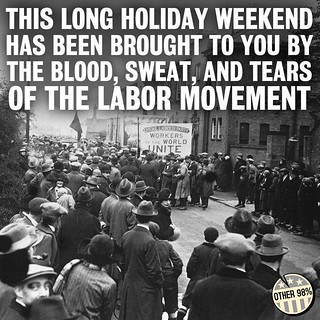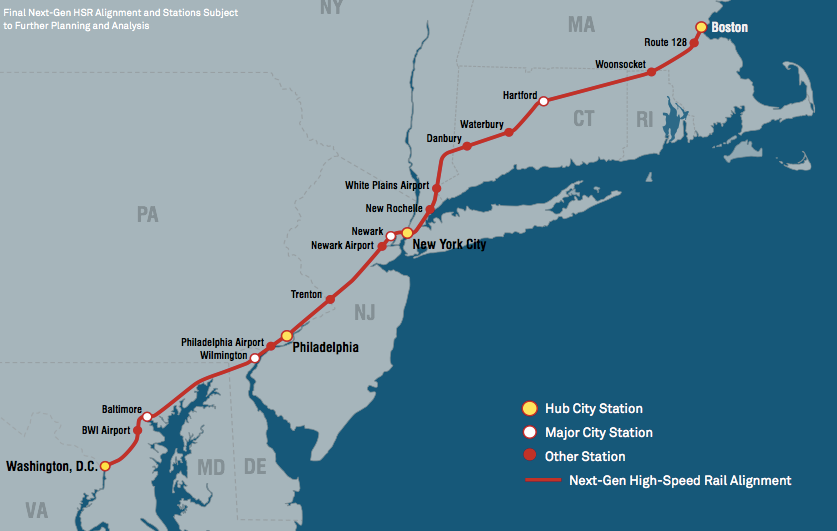“Punting the Pundits” is an Open Thread. It is a selection of editorials and opinions from around the news medium and the internet blogs. The intent is to provide a forum for your reactions and opinions, not just to the opinions presented, but to what ever you find important.
Thanks to ek hornbeck, click on the link and you can access all the past “Punting the Pundits”.
Follow us on Twitter @StarsHollowGzt
New York Times Editorial Board: Labor Today
Wages and Salaries Still Lag as Corporate Profits Surge
In the months before Labor Day last year, job growth was so slow that economists said it would take until 2021 to replace the jobs that were lost or never created in the recession and its aftermath.
The pace has picked up since then; at the current rate, missing jobs will be recovered by 2018. Still, five years into an economic recovery that has been notable for resurging corporate profits, the number and quality of jobs are still lagging badly, as are wages and salaries. [..]
Worse, the recent upturn in growth, even if sustained, will not necessarily lead to markedly improved living standards for most workers.
That’s because the economy’s lopsidedness is not mainly the result of market forces, but of the lack of policies to ensure broader prosperity. The imbalance will not change without labor and economic reforms.
Robert Kuttner: Labor Day: The Beginning of a Breakthrough
This Labor Day, working families do not have much to celebrate when it comes to wages and job security. But we can celebrate the fact that the deteriorating conditions of work are finally breaking through into broad political consciousness. [..]
This Labor Day, more people are conscious of the fact that precarious work needn’t be the norm. As citizens, we need to politicize an issue that until now has been seen mainly as people’s private problems — I was born at the wrong time; I didn’t get enough education; I should have been an entrepreneur.
Sorry, but people just like you, in an economy with different rules, were able to get a much fairer shake from the system. We need a fair economy back. It begins with consciousness and consciousness has to lead to politics.
Sarah Werblin:
Blockbuster bank settlements leave consumers hanging
Details of homeowner relief stay opaque while tax deductions and accounting loopholes lower cost to banks
Last week Bank of America reached a settlement with the U.S. Department of Justice to the tune of $16.65 billion for its role in selling faulty mortgages in the financial crisis. Such big-dollar settlements with large banks – including, in the past year, Citigroup and JPMorgan Chase – sound like harsh punishments but in actuality amount only to slaps on the wrist.
For one, those colossal dollar figures are rarely the actual prices the banks will pay. The real costs to these companies is muddled by tax deductions, unclear directives and accounting loopholes. The secretive negotiation process for settlements is also inconsistent with the civil and criminal process the average American faces.
It’s no wonder, then, that the nation has settlement fatigue; the feeling among consumer advocates and the public is that these agreements have negligible impact on the lives of homeowners affected by the financial crisis.
Julia Zulver: Are reproductive rights human rights?
Women’s lives continue to be endangered by anti-abortion policies.
Hashmat Moslih recently wrote an opinion piece noting that the concept of human rights faces huge challenges in a culturally diverse global setting. He states: “It is impossible to develop a harmonised human rights philosophy that is not circular. At the heart of the issue of human rights runs the issue of justice and at the heart of justice runs the issue of happiness and it is argued that happiness is attained through acquiring a good life and a good life is one that insures everyone’s well-being. But how do we define well-being?”
There are many definitions of well-being, grounded in various cultural, religious, and historical contexts. Furthermore, as Moslih notes, there are contested views about what constitute fundamental rights, and whether we can ever consider these non-ideological. For example, there is by no means an international consensus about whether sexual and reproductive rights can be considered universal.
Despite this, the words of Morena Herrera, the leader of the Agrupacion Ciudadana por la Despanalizacion del Aborto (Citizens Group for the Depenalisation of Abortion), during a personal interview, will always ring clearly in my mind: “by ruling against an abortion [in the case of Beatriz], El Salvador is ruling against the life of a woman.”
Emma Brockes: Are you a summer person? Because the autumn people are already winning
Good riddance to the sunny, lazy season. You know exactly what you’re going to get with a rainy, productive day
Summer officially ends on Monday and, with it, the wearing of white and that feeling of being on vacation all the time. So, too, the ascendence of summer people over winter people. The calendar year runs January to January, but for many, that sinking, new-school-year feeling that comes around the first of September is the real start of the new year. How depressed the new season makes you – well, that depends largely on which season you think of as “yours”.
I used to be a summer person. I used to think winter people were creepy, pale-skinned, slow-moving creatures who lived in long sleeves and probably cut up their burgers with a knife and fork. In England at least, where the sun comes out for approximately two weeks a year, there was, I thought, a deliberate perversity to those who complained about it.
And then I moved to New York, where the summer is as bald and unrelenting as an English winter. Heat of 90°F with humidity isn’t cheering, it’s sedating – and keeps you inside as effectively as snow.


 One of the transit bloggers that I enjoy reading is Alon Levy who blogs his observations on a variety of transit topics at
One of the transit bloggers that I enjoy reading is Alon Levy who blogs his observations on a variety of transit topics at
Recent Comments